Congressional ‘poison pill’ could scuttle AUKUS nuclear subs deal
Concerns about technical and political risks to the landmark security pact are growing in Washington.
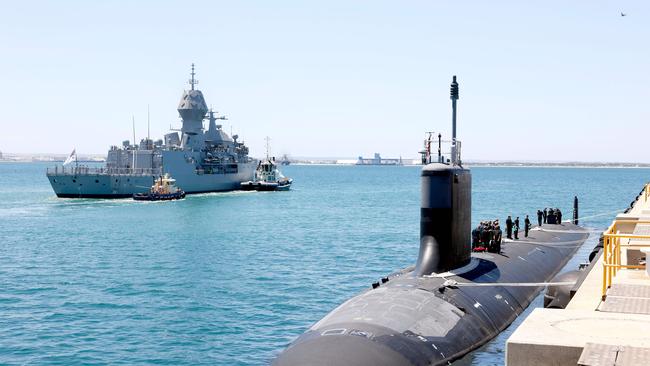
A senior defence policy adviser to the Clinton administration has warned AUKUS was “doomed to failure” without a significant revamp of US defence technology export regulations, amid growing concern that congress might ultimately baulk at the sale of nuclear powered submarines to Australia.
Jeffrey Bialos, partner at law firm Eversheds-Sutherland and former deputy undersecretary of defence during the Clinton administration, told The Australian that the three-way defence alliance would be “dead on arrival” based on the as-yet legislated proposals to operationalise the landmark deal.
“None of these measures do more than put Band-Aids on longstanding issues. The idea of an exemption for Australia and the UK isn’t new, we tried it in the late ’90s and it failed,” he said.
Mr Bialos, who was also one of the architects of an effort to reform of US defence technology export regulations in the Clinton administration, said the regulatory standards that would be required of Australia and Britain were so stringent that the countries wouldn’t agree to them and in practice co-operation couldn’t occur, even if the White House was under the impression it could.
“Everybody knows they’re never going to get to yes on that with Australians and the UK, because these countries have their own laws, their own traditions and their own approach to export controls,” he said.
Defence Minister Richard Marles and ambassador to the US Kevin Rudd in July hailed a proposed amendment to US law to facilitate the transfer of submarines to Australia, which was later held up by Senate Republicans who insisted the administration boost spending on submarine production capacity first.
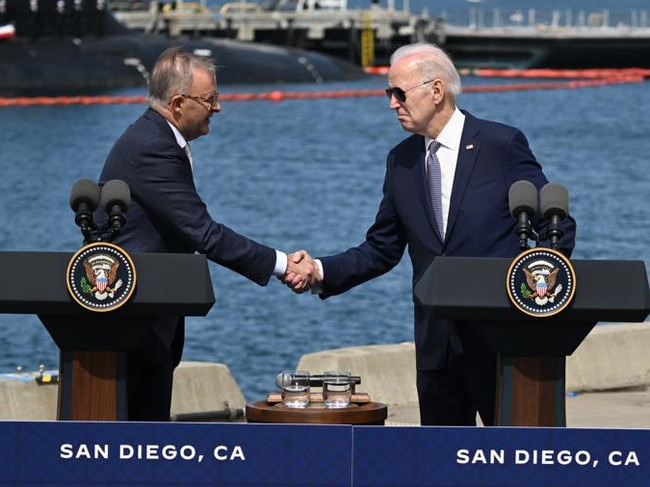
Provisions to approve the transfer of Virginia-class submarines to Australia, which is expected to buy between three and five from the US in the early 2030s, remain bogged down in debate in congress as Republicans and Democrats thrash out an annual defence spending bill.
“It’s not so much the sale [of the subs] that’s going to be the problem, it’s the essential technology co-operation related to it and Pillar II activities; the rules effectively kill it,” Mr Bialos said.
“What I don’t understand is how a State Department that strongly supports AUKUS at the top level and supports the technology co-operation to enable it has put forward an ITAR exemption proposal with a poison pill,” he said, referring to the dormant congressional proposals to make pillars I and II of the AUKUS deal legally operational.
The State Department told The Australian it did “not comment on pending legislation”, pointing to recent public statements by senior officials that expressed support for AUKUS.
Bryan Clark, a senior fellow at the Hudson Institute and former adviser to the head of US naval operations, said he expected “a lot of controversy” when push came to shove and congress needed to approve the sales.
“When people start actually doing the math, it’s going to be very problematic, there’s already pushback on the Hill,” he said.
“We’ll get to 2030 and the question will be: is the US willing to sell to Australia up to about 10 per cent of its submarines,” he explained, suggesting the answer might be no.
Mr Clark said about 18 of the 50-strong attack submarine fleet of the US was in for servicing or major overhaul, implying about 10 per cent had been promised to Australia earlier this year as part of the pathway agreement announced by President Joe Biden, and Anthony Albanese in San Diego.
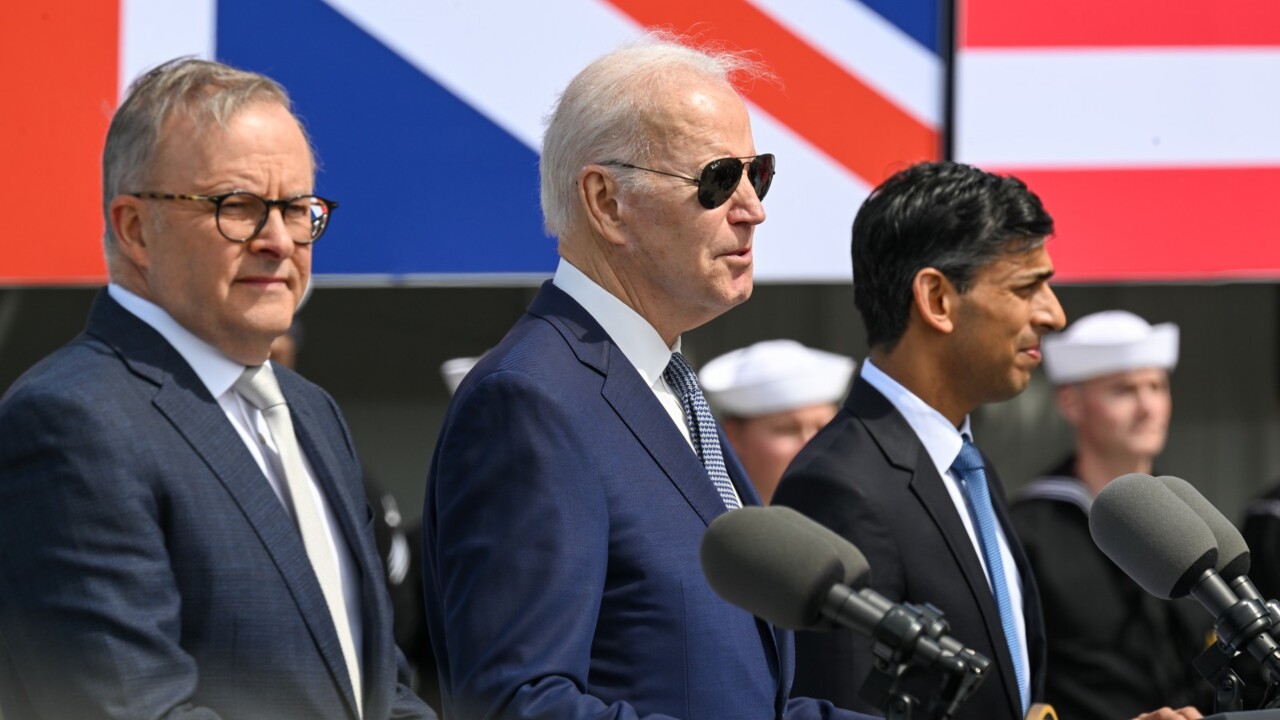
As part of AUKUS, Australia has promised to make a $US3bn contribution to the US government to help expand US domestic submarine production, but Republicans doubt that will be enough additional funding to significantly boost production.
“Putting more money into the submarine industrial base is not going to build submarines any faster, as it’s constrained by workforce and space considerations,” Mr Clark said.
The cost of the submarine component of AUKUS, estimated $368bn through to the 2040s, has attracted criticism from elements in the Labor Party, including over concerns that the US might ultimately fail to provide the Virginia-class submarines because of supply bottlenecks that have dragged US domestic submarine production rate down to 1.2 a year rather than the two congress had planned.
Mr Bialos said in the late 1990s that president Bill Clinton, who had wanted greater technology sharing with allies such as Britain and Australia, overruled his State Department, which wanted to keep tighter control over transfer of defence assets and technology.
“But they in effect got their bureaucratic revenge because they work with allies on the Hill and put this poison pill into the law,” he said.


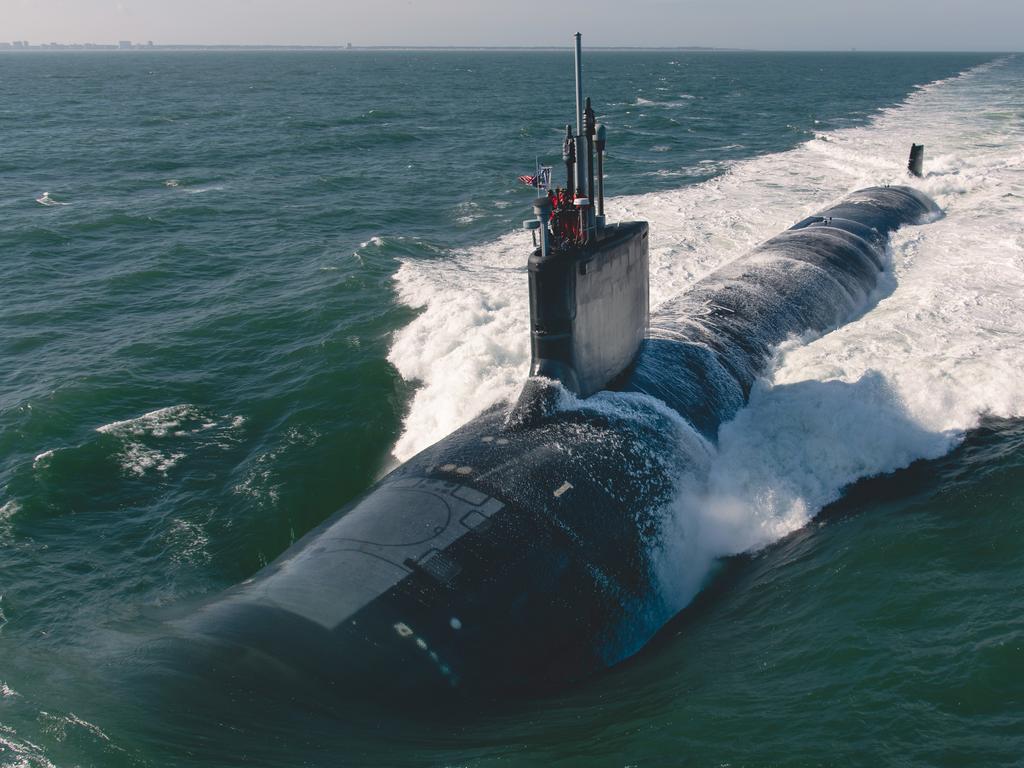

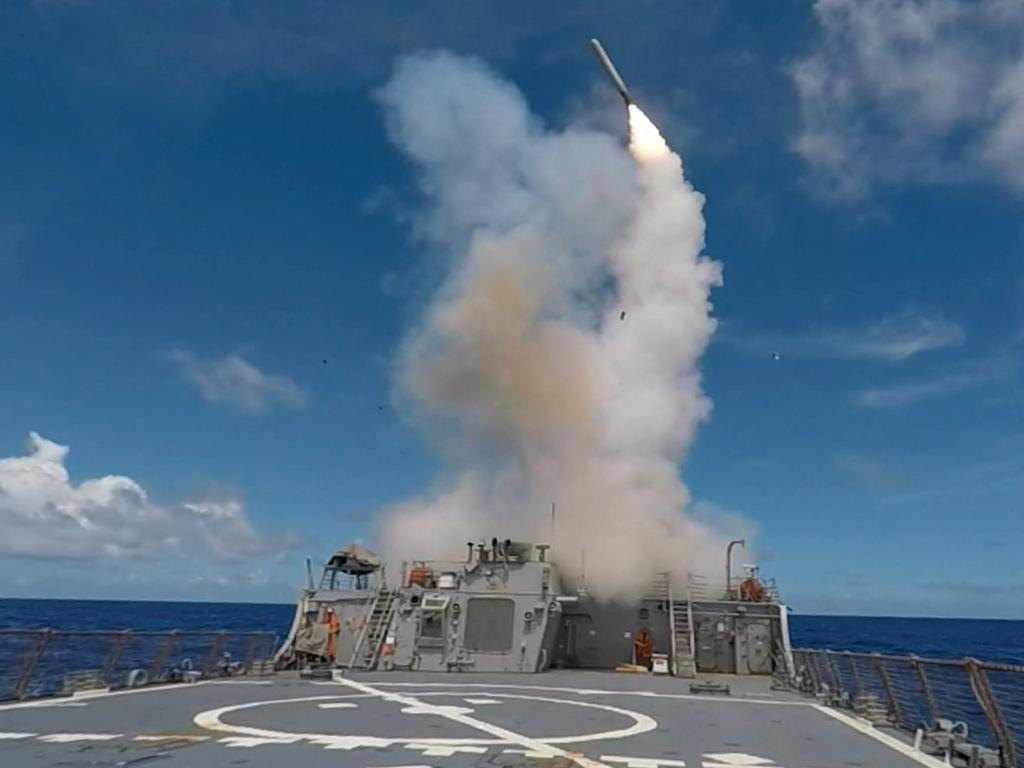
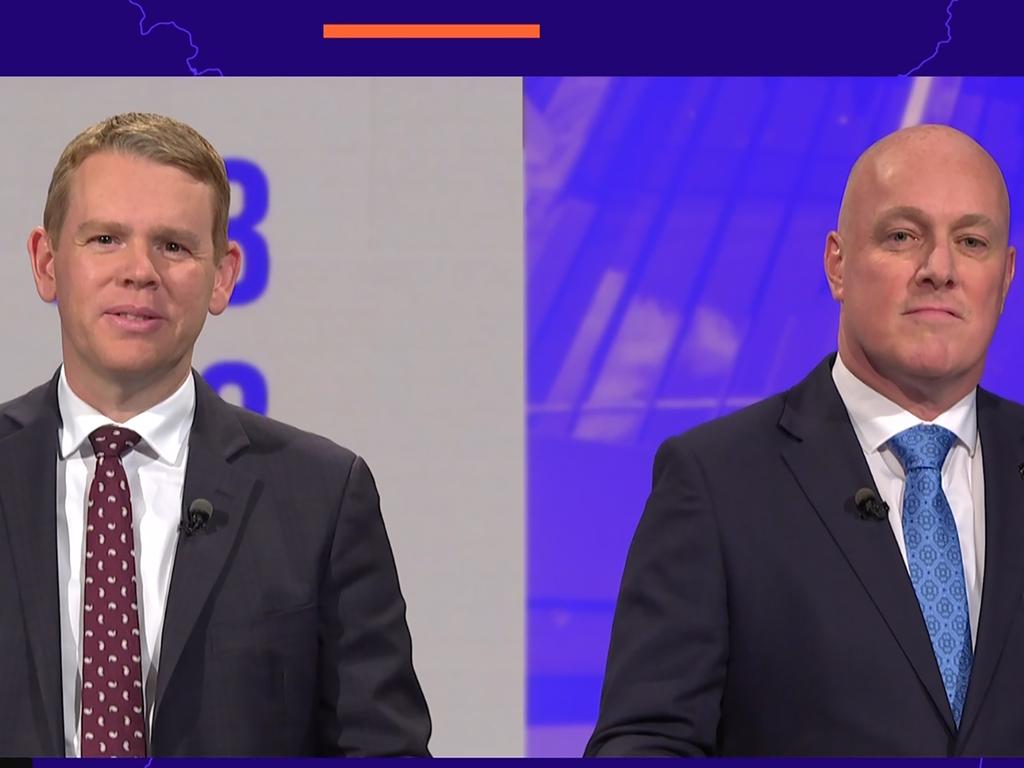
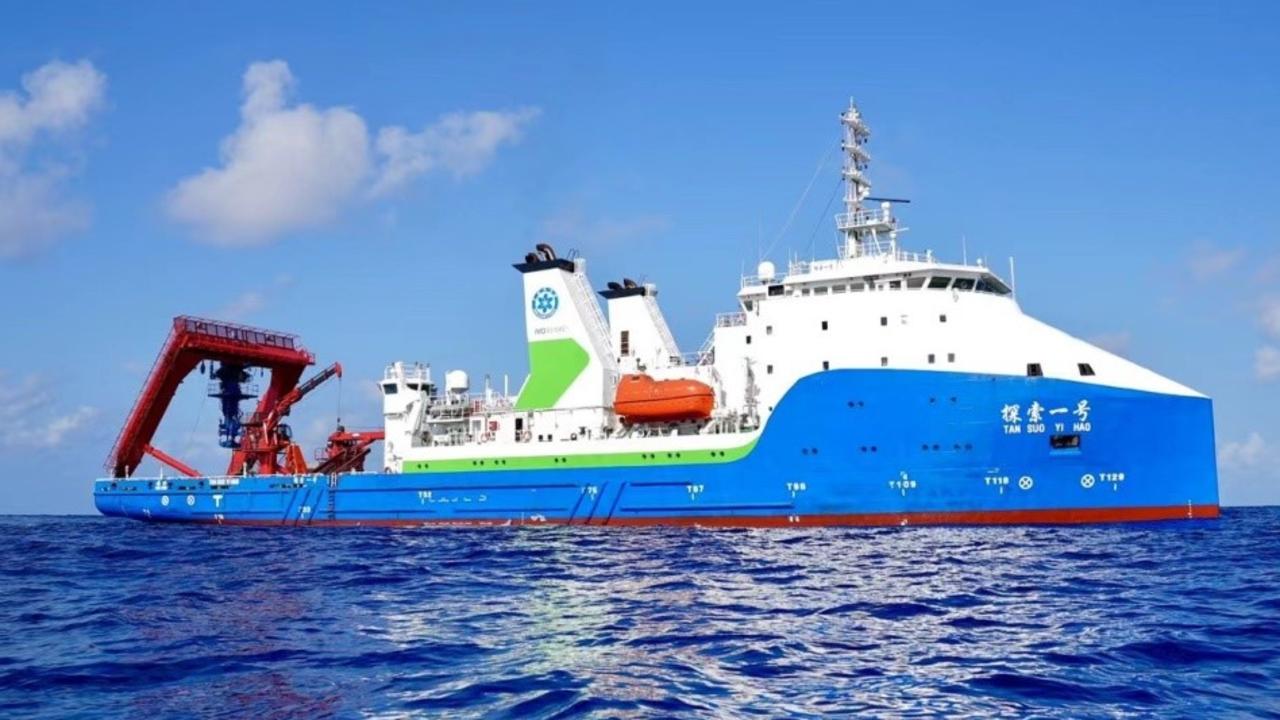
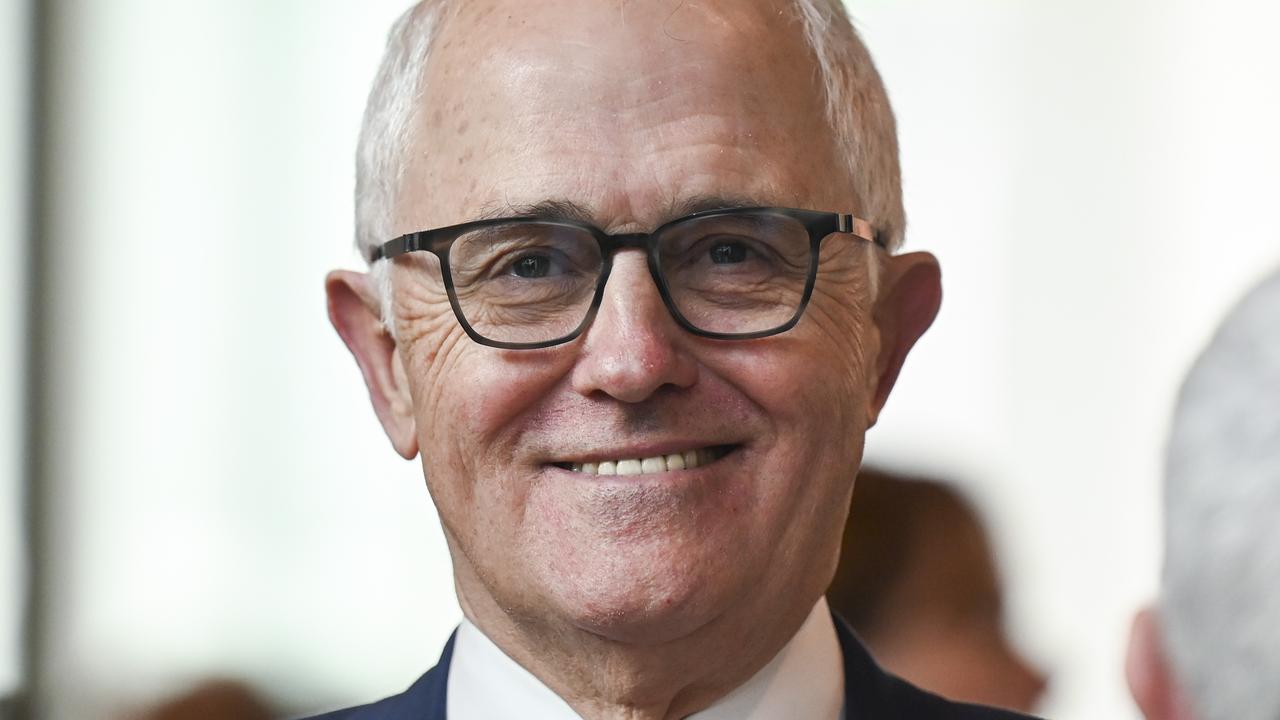
To join the conversation, please log in. Don't have an account? Register
Join the conversation, you are commenting as Logout